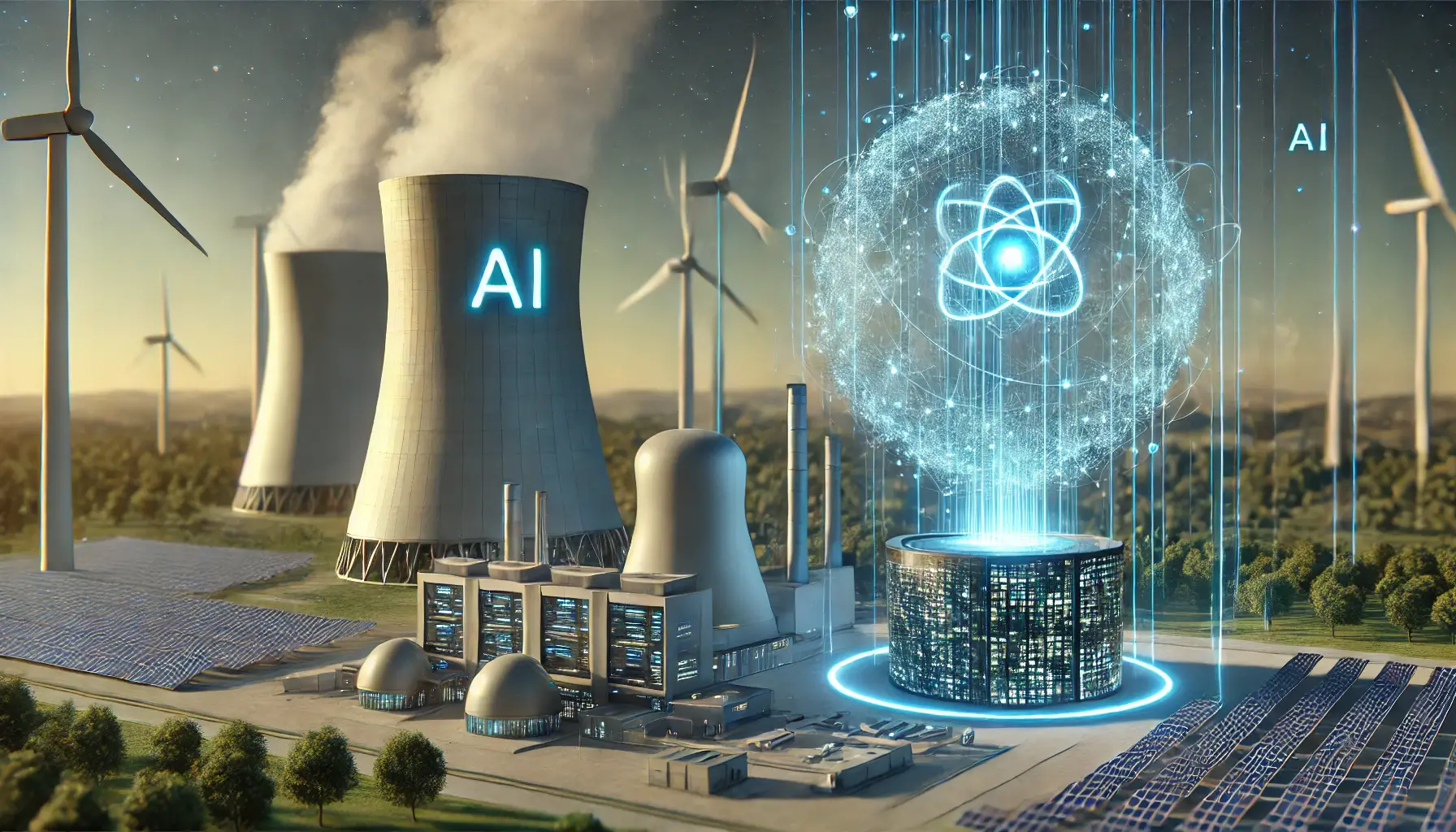The escalating energy demands of Artificial Intelligence (AI) infrastructure are pushing the boundaries of existing power grids and raising concerns about environmental sustainability. As AI models become increasingly complex and data centers expand to accommodate them, the need for reliable, carbon-free energy sources has become paramount. Nuclear power is emerging as a potential solution, offering a high-density, 24/7 energy supply to fuel the AI revolution.
AI's insatiable appetite for power stems from the computational intensity of training and running complex models. These processes require vast amounts of energy for processing, cooling, and data storage, placing significant strain on existing energy infrastructure. The International Energy Agency (IEA) estimates that data centers, the backbone of AI, consumed approximately 460 TWh of electricity in 2022, a figure projected to exceed 1000 TWh by 2026. This escalating demand necessitates a shift towards more sustainable and reliable energy sources.
Nuclear power presents several advantages in addressing the energy needs of AI infrastructure. Firstly, it offers a high energy density, meaning that a small amount of nuclear fuel can generate a significant amount of electricity. This is particularly appealing for data centers, which require large amounts of power in a concentrated area. Secondly, nuclear power plants can operate continuously, providing a stable and reliable energy supply that is not subject to the intermittency of renewable sources like wind and solar. This baseload power capability is crucial for maintaining the uninterrupted operation of AI systems. Thirdly, nuclear energy boasts near-zero carbon dioxide emissions, making it a viable option for reducing the carbon footprint of AI infrastructure.
Several major tech companies have already begun exploring nuclear power as a solution to their growing energy demands. Microsoft has committed to purchasing the entire output of the revitalized Three Mile Island nuclear facility in Pennsylvania, while Google is investing in small modular reactors (SMRs) to power its data centers. These initiatives signal a growing recognition of nuclear power's potential to meet the energy needs of AI in a sustainable manner.
Small modular reactors (SMRs) are gaining traction as a particularly promising technology for powering AI infrastructure. SMRs are smaller, more flexible, and potentially more cost-effective than traditional nuclear reactors. They can be deployed on-site at data centers, reducing transmission costs and enhancing energy security. Furthermore, SMRs incorporate advanced safety features and can be designed to operate with minimal human intervention.
However, the adoption of nuclear power for AI infrastructure also faces challenges. The construction of new nuclear power plants is capital-intensive and time-consuming, and regulatory hurdles can further delay project timelines. Public perception of nuclear power remains a concern, particularly in light of past accidents. Addressing these challenges will require proactive engagement with stakeholders, transparent communication about safety measures, and continued innovation in nuclear technology.
Despite these challenges, the convergence of AI and nuclear power represents a significant opportunity to create a more sustainable and resilient energy future. By harnessing the power of nuclear energy, AI infrastructure can reduce its carbon footprint, enhance energy security, and ensure the continued growth of this transformative technology. The collaboration between tech companies, nuclear energy providers, and policymakers will be crucial in realizing this vision and unlocking the full potential of AI infrastructure fueled by nuclear power.

















